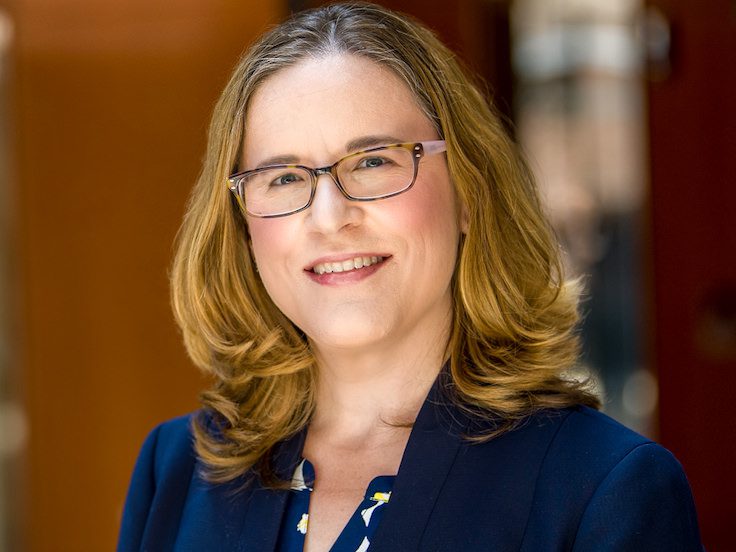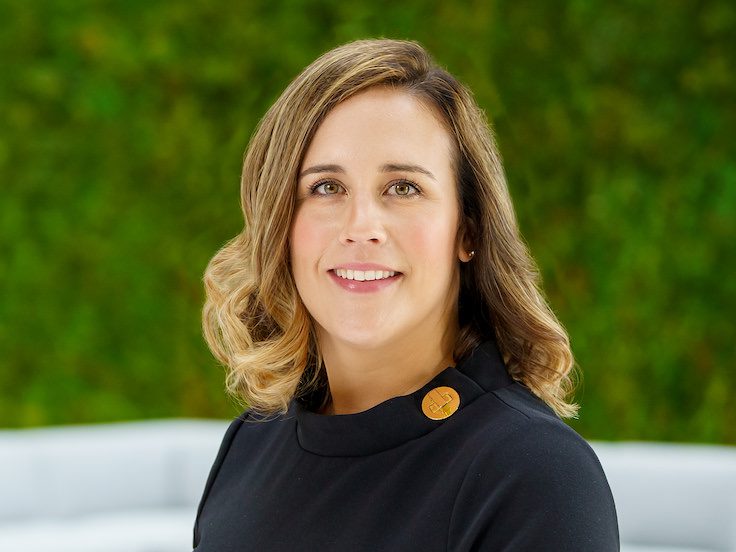University Transportation Planning
College campuses are unique places. No two are alike, although they may share common features. Urban, suburban, and rural campuses; residential and commuter schools – all have different transportation needs.
While many campuses are venerable and even quaint, university transportation networks are under strain from the modern needs and demands of the entire college community, which includes surrounding neighborhoods. That means a constant need for rethinking and upgrading traffic systems.
Universities Face Transportation Challenges
For many universities, helping students and staff make their way efficiently to and through the campus is a challenge. In addition, visitors and events put extra stress on campus transportation networks.
What kind of transportation systems do modern universities need? Cutting-edge campus transportation networks:
- Find ways to help universities grow while reducing the need for parking and other traditional infrastructure
- Manage travel and parking to a high degree to minimize impacts on public infrastructure and adjacent neighborhoods
- Provide access and mobility without destroying the distinctive feel of the community
- Encourage a modal shift from cars to other modes by making public transit, bicycles, and walking more convenient
- Help sustain the environment by developing infrastructure and strategies that reduce vehicle trips
Campus Transportation Solutions
Each university’s set of transportation challenges inevitably involves issues that our Transportation Planning, Traffic Engineering, Traffic Design, and Transportation Demand Management (TDM) teams tackle on a daily basis.
Our transportation planners focus on the effective movement of people within a campus considering all modes of transportation. This includes providing for proper walking and biking infrastructure (paths, bike lanes, bike racks), ensuring that there is adequate transit connectivity, ensuring adequate parking supply, and designing appropriate vehicle access and circulation.
Universities need to regularly update their transportation networks, especially as campuses change, populations and commuters expand, and communities become more dense. Our traffic engineers aim to achieve the safe and efficient movement of people and goods using tools such as traffic control devices (signs, road surface markings, and traffic signals), road geometry, street lighting, sidewalks and crosswalks, bicycle infrastructure, and modern parking facilities.
Finally, our transportation demand management (TDM) experts develop strategies to reduce driving and parking demand. TDM focuses on ways to develop more transportation choices for people without expanding private vehicle infrastructure such as roads and parking structures.
Our university TDM team creates strategic ways to get cars off university road networks and fosters transit-oriented options, walkable activity centers, and livability and sustainability initiatives. Since close proximity to campus destinations can’t be achieved for all, we also focus on improving wayfinding infrastructure to help people find their way. Our TDM initiatives have proven that travel behavior can be changed for the betterment of the community.
Our university transportation experience has also been augmented by our work on K-12 school transportation projects, which share many of the same challenges as modern university communities.
To learn how we can help you improve transportation and parking at your university, reach out to our University Transportation Team here.
W+A University Transportation Consulting Experience
Our educational sector project experience includes:
George Washington University
Our traffic engineers and transportation planners have worked with the Washington, DC-based George Washington University on many transportation projects since 2006. Our team conducted a multi-modal transportation study that evaluated existing and proposed traffic and parking conditions; documented existing public transportation, pedestrian, bicycle, and loading facilities; and documented the effectiveness of the existing transportation management plan. Since then, we’ve helped implement the transportation aspects of plans to redevelop a former hospital site and build academic and health buildings, a new museum, and a new office building and residence hall.
Georgetown University
As Georgetown University’s traffic consultant, W+A executed a detailed review of the transportation study associated with the 2011-2017 Campus Plan and provided expert witness testimony at the DC Zoning Commission, which subsequently approved the Plan. Since then, our firm has provided transportation consulting services to the university, including rerouting university buses to non-residential streets, developing an on-campus transit route to accommodate all users, and conducting the university’s annual Transportation Performance Monitoring Study, which includes an evaluation of vehicle and bicycle parking demands.
University of Delaware
Wells + Associates was engaged by the University of Delaware (UD) to seek ways to enhance the University’s existing shuttle service and envision how the shuttle system could evolve to meet the future needs of the university community. The project included both qualitative and quantitative assessments of shuttle services at the university and resulted in the adoption of new shuttle routes and schedules that are currently operational.
Virginia Tech
Virginia Tech is the Commonwealth of Virginia’s third-largest university with over 30,000 students primarily based at the university’s Blacksburg campus. W+A was retained as part of an architectural design team to prepare the transportation component of the Virginia Tech Master Plan Update. This included consideration of the vehicular circulation, public transport, and parking systems. As part of this study, our team evaluated existing campus road networks, key intersections, and off-site road connections. Short- and long-term future vehicular circulation needs were identified and specific roadway improvements were recommended.
Montgomery College
Our team prepared a traffic impact analysis for Montgomery College’s proposed parking lot expansion. The expansion was planned as part of the Montgomery County, Maryland college’s planned expansion to meet anticipated enrollment growth. The analysis addressed a number of issues, including existing parking demands at the Rockville campus; accommodation of future enrollment growth; supplemental parking to accommodate the construction of a future parking garage; and the supply of additional parking spaces to serve demand generated by new buildings and to replace spaces displaced by new construction.
Auburn University
Wells + Associates was retained by Auburn University to prepare a transportation master plan for the university. The plan featured the establishment of a pedestrian zone in the campus core and included strategies for pedestrianization, bicycles, parking, transit, and centralized receiving and distribution. Football games are a cherished tradition at Auburn, but increasing problems with spectators, campus disruptions, and parking led to our engagement on this issue. Our Auburn football game-day transportation strategy included the development and implementation of game-day parking, traffic, shuttle bus, enforcement, and communications plans.
George Mason University
With an enrollment of nearly 35,000 students, George Mason University is one of the largest universities in the Commonwealth of Virginia. GMU’s Fairfax campus is home to the majority of the undergraduate population, as well as sport and arts facilities. W+A was the transportation consultant for the Fairfax campus Southwest Sector Plan, which included significant new classroom, research, retail, hotel, and conference space. We evaluated traffic, pedestrian, and parking requirements for the sector and surrounding areas. We also managed traffic impact analyses, parking studies, and traffic signal projects in support of expansion plans for George Mason’s Arlington campus.
Mount Saint Mary’s University
W+A advised Mount Saint Mary’s, located in rural Emmitsburg, Maryland near the Pennsylvania border, on the traffic and parking impacts of a variety of projects, including new dormitories, a new 1,000-seat lacrosse and soccer stadium, and renovations to the performing arts center. With each of these projects, we analyzed parking, traffic circulation on-campus, and access to and from US Route 15, which bisects the campus. Our work included evaluating existing occupancies, forecasting future parking demand, and evaluating the adequacy of existing on-campus parking facilities. We surveyed fine arts center patrons and observed events to determine driving and parking patterns, using these analyses to develop justification to Frederick County for the adequacy of university’s transportation infrastructure.
Northern Virginia Community College
Northern Virginia Community College is the second-largest multi-campus community college in the United States with over 75,000 students enrolled across six campuses. Wells + Associates has reviewed, evaluated, and analyzed traffic, pedestrian, transit, and/or parking conditions at NVCC’s Loudoun, Annandale, Woodbridge, Alexandria, Medical Education, and Manassas campuses. Our services have included collection of existing traffic and parking demands; estimation of the number of additional trips and parking spaces related to student growth; and implementation of campus master plans.
Marymount University
Marymount University in Arlington, Virginia has experienced severe parking shortages, with most of the institution’s nearly 1,000 parking spaces filled to capacity on weekdays by faculty, staff, students, and visitors. W+A was retained by Marymount to evaluate the traffic impacts of a new parking structure and prepare a parking management plan (PMP). The PMP included shuttle bus service linking the university’s two Arlington campuses to Metrorail transit, parking permits, event parking, and a loading management plan. Consensus was achieved among the university, county, and neighboring community through a facilitated design and review process.
Columbia Union College
Columbia Union College, now known as Washington Adventist University, is a private, four-year college. Established in 1904, it is located in Takoma Park, Maryland. Expansion and community relations are common issues facing universities, and transportation solutions are integral to successfully dealing with growth. Columbia Union’s master plan called for increased enrollment, new and expanded construction, and private memberships for community residents to use a proposed Wellness Center. Related to these development projects, Wells + Associates prepared parking demand analyses as requested by the Maryland-National Capital Park and Planning Commission.
Contact our University Transportation Team

Jami L. Milanovich, P.E.
Principal | (703) 676-3608
jlmilanovich@wellsandassociates.com
A registered Professional Engineer, Jami has over two decades of experience creating innovative transportation solutions for universities and schools. Her work includes traffic impact studies, parking analyses, intersection improvement design, loading management plans, site access studies, and expert witness testimony.
Courtney J. Menjivar
Vice President | (703) 676-3636
cjmenjivar@wellsandassociates.com
Courtney Menjivar is a passionate global implementer of Transportation Demand Management (TDM) programs. TDM programs aim to reduce reliance on single-occupancy vehicles, giving more transportation choices to commuters and raising the value of real estate developments.

